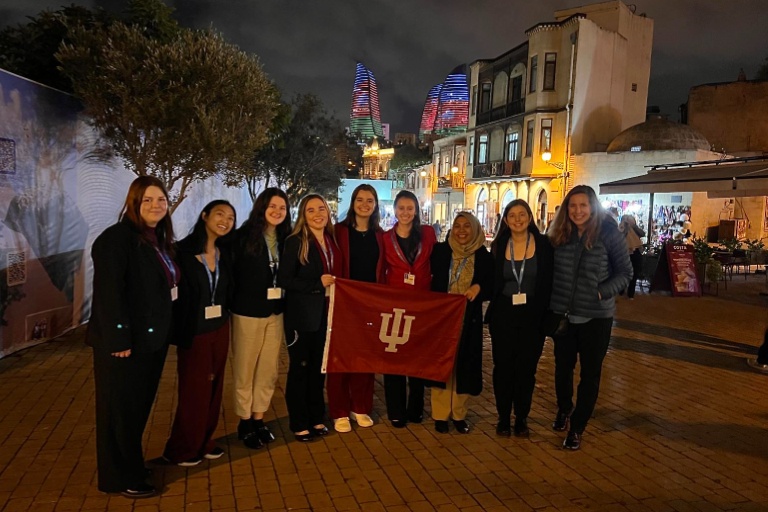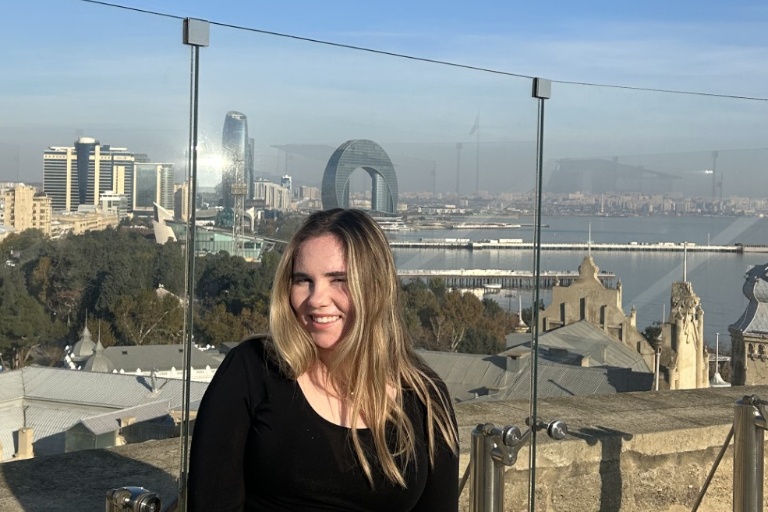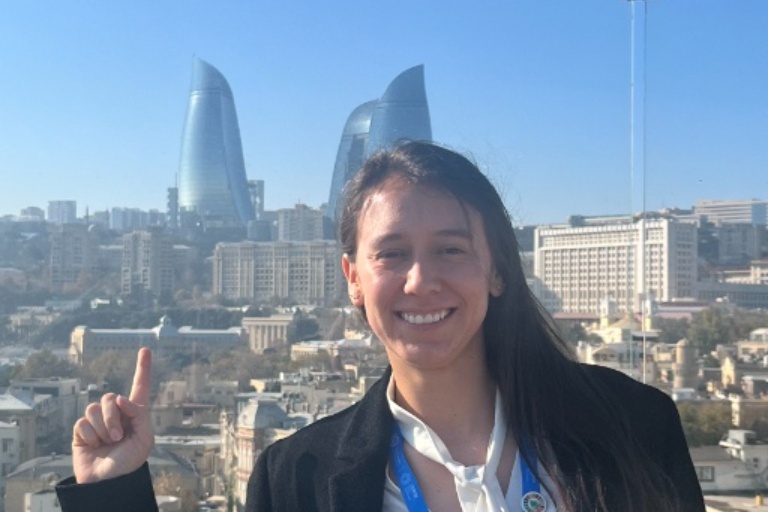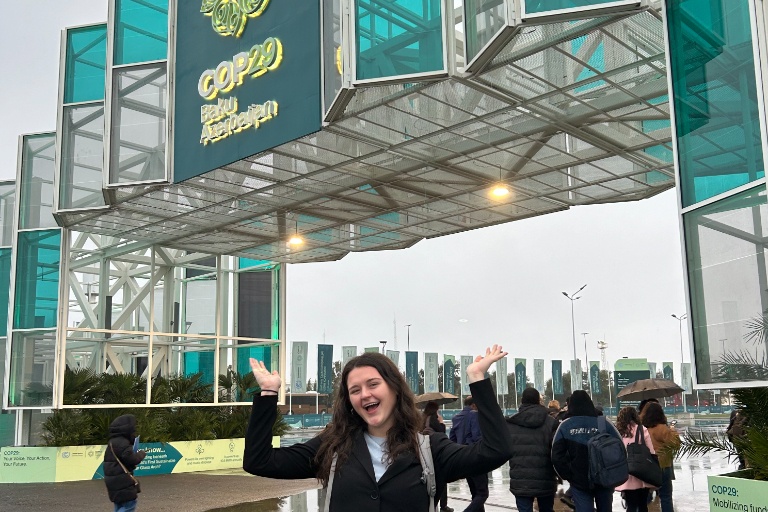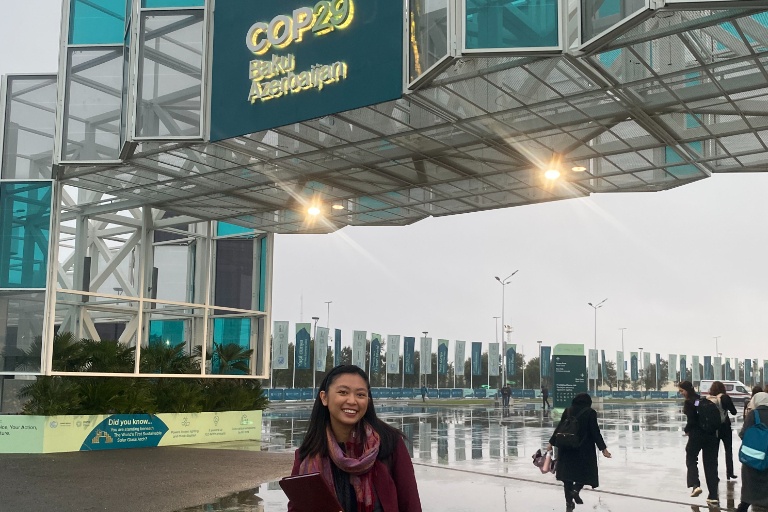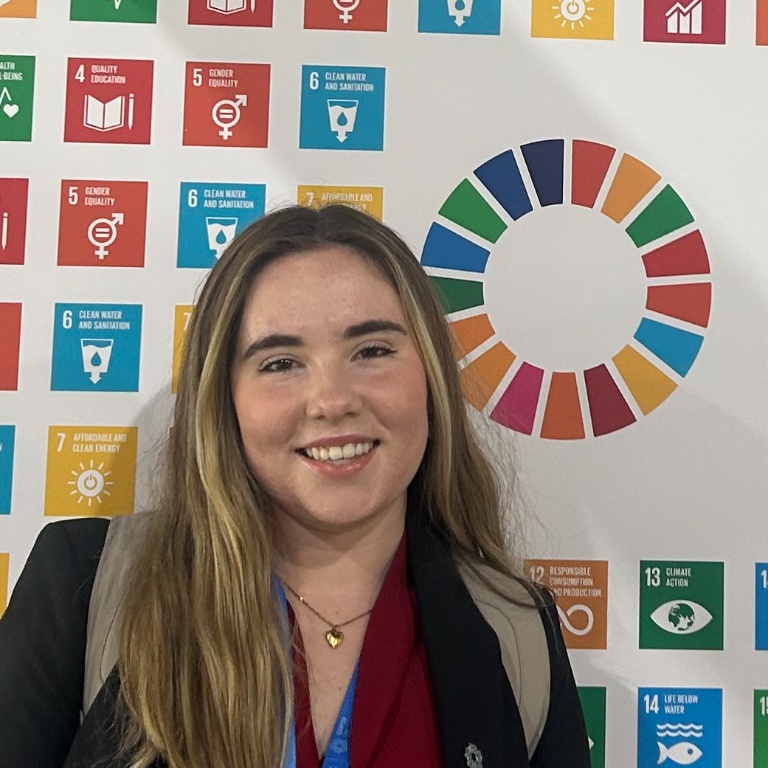With IU Bloomington's unique combination of opportunities, organizations, and coursework, IU students are joining world leaders to discuss how we must adapt to climate change and prioritize solutions. Students in Jessica O’Reilly’s international climate government class, had the opportunity to attend the United Nations climate conference, COP29, held Nov. 11 – 22 in Baku, Azerbaijan.
The Integrated Program in the Environment and the Environmental Resilience Institute offered partial scholarships to four of these promising students to support their trip. IPE sponsored Gie Wilson and Julianne Hatcher, both seniors majoring in environmental and sustainability studies. ERI sponsored Ana Lim, senior in social work, and Daniela Castellanos, an MPA-MSES student. All four are former McKinney Climate Fellows.
Among this global community, each of the IU delegates entered the conference, not only to observe, but to further their climate-related research projects across disciplines.
Read about their research and their impressions from the conference.


